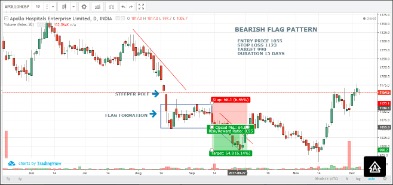Suddenly, traders from all corners of the globe scramble to react, flooding the market with buy or sell orders. By understanding why your spreads are high, you can make informed decisions about when and how to trade. This mark-up can vary across brokers and can significantly contribute to the overall spread you see on your trading platform. So, finding https://g-markets.net/ a broker with competitive pricing and efficient execution is crucial if you want to keep those spreads in check. By the end, you’ll have a better grasp of why spreads can be high and the steps you can take to mitigate the impact on your trades. This means that you will need to multiply the cost per pip by the number of lots you are trading.
Forex Trading in Nigeria – A Beginner’s Guide – Punch Newspapers
Forex Trading in Nigeria – A Beginner’s Guide.
Posted: Thu, 08 Jun 2023 07:00:00 GMT [source]
Fixed spreads stay the same regardless of what market conditions are at any given time. In other words, whether the market is volatile like Kanye’s moods or quiet as a mouse, the spread is not affected. Instead of charging a separate fee for making a trade, the cost is built into the buy and why are forex spreads so high right now sell price of the currency pair you want to trade. All spreads can be calculated by looking at the per-pip value of a trade and the number of lots that you are trading. To better understand the forex spread and how it affects you, you must understand the general structure of any forex trade.
Liquidity Providers
The pandemic has disrupted global supply chains, forced businesses to shut down or operate at reduced capacity, and caused widespread job losses. As a result, investors have become more cautious and risk-averse, leading to heightened demand for safe-haven assets such as the US dollar and Japanese yen. This is because the spread can be influenced by multiple factors like volatility or liquidity. You will notice that some currency pairs, like emerging market currency pairs, have a greater spread than major currency pairs.

In this article, we will explore why spreads are so high in forex and what factors influence them. Forex trading or FX trading is the act of buying and selling currencies at their exchange rates in hopes that the exchange rate will move in the investor’s favor. Traders can buy euros, for example, in exchange for U.S. dollars at the prevailing exchange rate–called the spot rate–and later, sell the euros to unwind the trade. The difference between the buy rate and the sell rate is the trader’s gain or loss on the transaction.
Liquidity
Additionally, some jurisdictions may have stricter regulatory requirements than others, which can also affect spreads. Investors need to monitor a broker’s spread since any speculative trade needs to cover or earn enough to cover the spread and any fees. Also, each broker can add to their spread, which increases their profit per trade.

Forex brokers often do their best to keep the spread as low as possible but there are a number of reasons why it may be high. To summarize, spread widening is an essential step to recover the market from its previous conditions. High spread means the major banks have low credit to give to smaller institutions operating in forex.
The Benefits of Using a Lot Size Calculator in Forex Trading
In particular, when there is an overlap, such as when the London session is ending and the New York session is beginning, the spread can be narrower still. The spread is also influenced by the general supply and demand of currencies; if there is a high demand for the euro, the value will increase. Remember, understanding the nuances of currency liquidity and popularity can significantly impact your trading experience. Lastly, we have the exotic currency pairs – the adventurers of the trading world. These pairs are highly traded and offer high liquidity, making them a favorite among traders.
By delving into the factors that contribute to higher spreads, we can gain valuable insights and explore ways to potentially reduce trading costs. Remember, knowledge is power, and staying informed about forex spreads will give you an edge in the market. It’s important to consider the liquidity and competition in the interbank market as well as the costs incurred by brokers. Understanding these factors can help you make more informed decisions and potentially find brokers with tighter spreads that align with your trading strategy. In this pricing model, the spread, or the difference between the bid and ask price, remains constant regardless of market conditions.
Why Does Spread Widen At 10 PM: 5 Reasons
Before we delve into the reasons for high Forex spreads, let’s first define what it is. In Forex trading, a spread is the difference between the bid price and the ask price of a currency pair. The bid price is the highest price that a buyer is willing to pay for a particular currency, while the ask price is the lowest price that a seller is willing to accept. The spread, therefore, represents the cost of buying and selling a currency pair. Forex trading is one of the most popular forms of investment globally, with trillions of dollars being traded every day. One of the most critical aspects of Forex trading is the spread, which is the difference between the buying and selling price of a currency pair.
- Fixed spreads have smaller capital requirements, so trading with fixed spreads offers a cheaper alternative for traders who don’t have a lot of money to start trading with.
- And just like that crowded marketplace, there are times when things calm down, volatility decreases, and spreads tighten up.
- In forex trading, the spread is the difference between the bid and ask price of a currency pair.
Brokers add a markup to these prices, which is their commission, and this is how they earn their profits. Another factor that affects forex spreads is the liquidity providers. Liquidity providers are the financial institutions that facilitate the buying and selling of currencies in the forex market. The spreads offered by brokers depend on the spreads provided by their liquidity providers. If the liquidity providers increase their spreads, the brokers will also increase their spreads to maintain their profit margins.
How Currencies Are Quoted
Market makers widen their spreads during periods of high volatility to protect themselves from potential losses. These factors have led to increased volatility, risk, and uncertainty in the markets, causing investors to become more cautious and risk-averse. As a result, forex spreads have widened, particularly for currencies of emerging market economies and countries that rely heavily on exports to China. Traders should be aware of these factors when trading in the forex market and adjust their strategies accordingly. Another factor that can contribute to high forex spreads is low liquidity.
- Remember, finding brokers with competitive spreads is just one piece of the puzzle.
- You stroll along, comparing prices and quality before deciding where to make your purchase.
- Forex brokers are required to comply with a range of regulations, including anti-money laundering (AML) and know your customer (KYC) requirements.
- Just like you would hunt for the best price on that perfect pair of shoes or the newest gadget, it’s essential to find a broker that offers competitive spreads.
As a trader, it is important to be aware of these factors and to choose a broker that offers competitive spreads and transparent pricing. By doing so, traders can improve their chances of success in the forex market. During the Asian trading session, for example, liquidity providers in Europe and the US may not be as active, which can lead to wider spreads. Similarly, during major news events or economic data releases, spreads can widen significantly as liquidity providers adjust their prices to reflect the new information. Traders who want to avoid high spreads may choose to trade during low volatility periods or in between major news events. Another factor that affects spreads in forex is the liquidity of the currency pair being traded.
